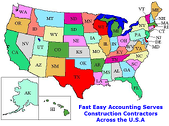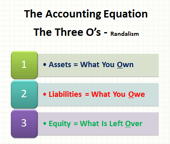
1. Balance sheet
The balance sheet is a snapshot of your company's financial position at a specific time. It includes your assets, liabilities, and equity. For construction contractors, the balance sheet reflects the value of equipment, property, other assets, any outstanding debts, and your company's net worth. Monitoring your balance sheet helps you track your company's financial stability and wealth.
Assessing net worth: By understanding your assets and liabilities, you can easily calculate your company's net worth.
Financial stability: The balance sheet helps you gauge whether your business is financially stable or if it's relying too much on borrowed funds.
Practical tip:
Regularly review your balance sheet to make informed decisions about investing and financing to foster growth. If you notice a high level of liabilities compared to assets, consider strategies to reduce debt.
2. Income statement
The income statement, also known as the profit and loss statement, provides an overview of your company's revenues, expenses, and profits over a specific period. As a contractor, your income statement reflects your revenue from completed projects and your operational costs, such as materials, labor, and overhead (LMOS). Analyzing your income statement helps you assess the profitability of your projects and identify areas where you can improve efficiency.
Operational efficiency: By reviewing your income statement, you can identify how efficiently your business operates.
Profitability: It shows your ability to generate profit by increasing revenue or reducing costs.
Practical tip:
Keep an eye on revenue and expense trends. If operating expenses are consistently rising, it may be time to reevaluate your cost management strategies.
3. Cash flow statement
The cash flow statement details how cash enters and leaves your business. It is divided into three sections—operating, investing, and financing activities—showing how well your company manages its money.
Due to the industry's cyclical nature, managing cash flow is especially critical for construction contractors. Your cash flow statement helps you monitor the timing of your receivables and payables, ensuring sufficient liquidity to cover ongoing expenses and take on new projects.
Liquidity: It helps you understand your company's ability to meet short-term obligations.
Expense management: By tracking cash flows, you can make more informed decisions about spending and saving.
Practical tip:
Pay close attention to operations cash flow. If you consistently see negative cash flow, it's a sign that you need to improve your operational efficiency or adjust pricing strategies.
4. Statement of changes in equity
This lesser-known but important report details the changes in the equity section of your balance sheet over a specific period. It includes contributions from shareholders and retained earnings.
Why it matters
Investment decisions: Helps investors understand how their investments are performing.
Retention strategy: Shows how profits are being reinvested into the business.
Practical tip:
Use this statement to communicate with potential investors. Highlight how you reinvest profits to fuel growth, showcasing your commitment to long-term success.
5. Financial ratios
Financial ratios are derived from your financial statements and provide deeper insights into your company's performance. Key ratios include profitability, liquidity, efficiency, and solvency ratios.
Quick insights: Ratios offer a quick snapshot of your business health.
Benchmarking: Compare your ratios with industry standards to see how your business stacks up.
Practical tip:
Calculate the current ratio (current assets divided by current liabilities) to assess your short-term financial health. A ratio above 1 indicates good liquidity.
6. Notes to the financial statements
These notes provide additional context, explaining the methods used in preparing the financial statements and offering detailed breakdowns of certain items.
Transparency: Enhances the transparency of your financial reporting.
Clarity: Helps stakeholders understand the numbers better, leading to more informed decisions.
Practical tip:
Ensure the notes are detailed and precise. Transparency builds trust with investors and other stakeholders, making them more likely to support your business.
Why Financial Statements Matter
Understanding how to read financial statements as a construction contractor can provide several key advantages:
Firstly, it allows you to assess the economic health of your construction business. Understanding your company's financial position enables you to make informed decisions about investments, expansion, and resource allocation.
Secondly, financial statements provide valuable insights for stakeholders, such as investors, lenders, and sureties. Maintaining accurate and transparent financial statements can enhance credibility and facilitate access to capital for future projects and growth opportunities.
Lastly, understanding your financial statements can help you identify areas for improvement and implement strategies to enhance profitability and operational efficiency. Whether reducing costs, optimizing cash flow, or diversifying your service offerings, your financial statements guide strategic planning and performance evaluation.
Remember that it can also aid in compliance and tax planning. Being aware of your financial position can help ensure that you are meeting regulatory requirements and assist you in making tax-efficient decisions.
In Conclusion
Reading and understanding financial statements is a valuable skill for construction contractors. It provides a clear picture of your business's economic standing and enables informed decision-making.
Each report offers valuable information, whether evaluating your net worth through the balance sheet, assessing profitability via the income statement, or managing liquidity with the cash flow statement.
Ready to take control of your financial health? If you need advice or assistance, contact our team. We're here to help.
PS
About The Author:
![]() Sharie DeHart, QPA, co-founded Business Consulting And Accounting in Lynnwood, Washington. She is the leading expert in managing outsourced construction bookkeeping and accounting services companies and cash management accounting for small construction companies across the USA. She encourages Contractors and Construction Company Owners to stay current on their tax obligations. She offers insights on managing the remaining cash flow to operate and grow their construction company sales and profits so they can put more money in the bank. Call 1-800-361-1770 or sharie@fasteasyaccounting.com
Sharie DeHart, QPA, co-founded Business Consulting And Accounting in Lynnwood, Washington. She is the leading expert in managing outsourced construction bookkeeping and accounting services companies and cash management accounting for small construction companies across the USA. She encourages Contractors and Construction Company Owners to stay current on their tax obligations. She offers insights on managing the remaining cash flow to operate and grow their construction company sales and profits so they can put more money in the bank. Call 1-800-361-1770 or sharie@fasteasyaccounting.com
OUTSOURCED ACCOUNTING FOR
THE BUSY CONTRACTOR
IN A MOBILE ENVIRONMENT

|

|

|

|
Download the Contractors APP today from the App Store or Android Store
Access Code: FEAHEROS
Click here to download the App on Android:
Click here to download the App on iOS:
Scan the QR code or search for ‘MyAccountants’ in the App Store. Enter the Access code: FEAHEROS to utilize the powerful App features and capabilities and benefit from having our Construction Accounting App at your fingertips, 24/7."
PS: Even if you are not a Construction Contractor, the app offers plenty of benefits, so we invite you to download it, too! It's Free, so why not?





























